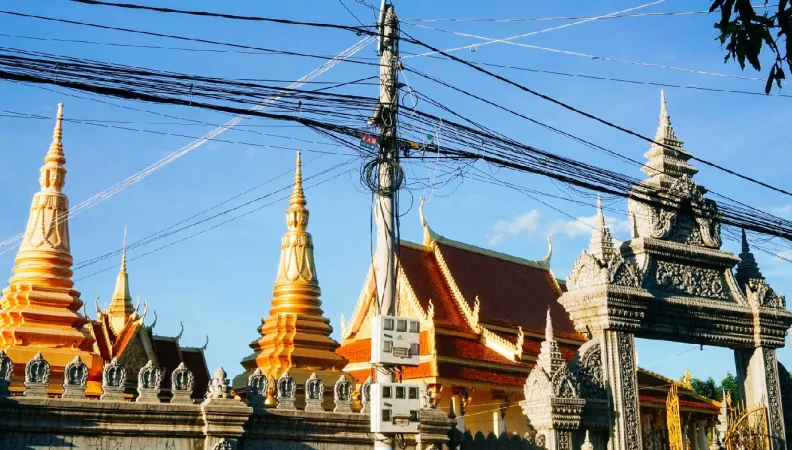Share the page
Reconciling Energy Transition and Economic Development in Cambodia: The 2050 Facility Mobilized
Published on

To meet the demands of a growing population while ensuring its development is sustainable: these are Cambodia’s twin goals under the Paris Agreement. The Ministry of Economy and Finance signed a Memorandum of Understanding in July, which included €300,000 in support as part of the 2050 Facility, which is extended to AFD’s partners engaged in low-carbon development.
The Cambodian economy, mainly driven by the industrial sector, is growing rapidly. While biomass remains the country's main primary source of energy, the demand for electricity is booming: analyses forecast an average increase of 15% per year until 2040.
The country has nevertheless set out to meet several objectives at once: to ensure affordable access to electricity for all, obtain long-term energy security and independence, all the while respecting the Paris Agreement.
As part of the 2050 Facility (created in the wake of the 2017 One Planet Summit), AFD signed on 24 July an MoU with the Policy Department of the Ministry of Economy and Finance, which hosts an inter-ministerial working group on the energy sector.
The objectives of the project are multiple:
- Define a long-term energy sector trajectory in line with the long-term objective of the Paris Agreement on the basis of scenarios for the evolution of the sector and its impact on economic growth
- Define a strategy for the energy sector to support the country's growth and contribute to future national energy sector policies
- Build the capacity of ministerial staff in macroeconomic and energy modeling and analysis
This support will materialize in two phases: on the one hand through the creation of a technical-economic model of the energy sector in Cambodia; and on the other hand through a multi-sectoral macroeconomic model to define the consequences of certain energy sector policies and priorities, particularly as they affect the Cambodian economy, from GDP to employment.
